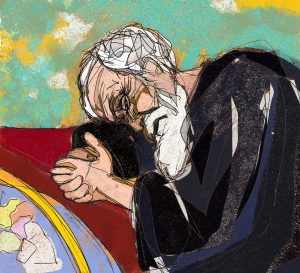By Ryan Smith
Heraclitus is arguably the most important philosopher with regards to Jungian typology.[1] At the very least, if one wishes to approach typology from a function-based perspective (as opposed to a trait, dichotomy, or temperament-based one), there is no getting around Heraclitus. In fact, a lot of the methodical errors surrounding the function-based approach to typology would (in my  opinion) seem to originate with people conceiving of functions as traits, as opposed to the Heraclitean structures they more properly are. The two greatest systematizers of modern trait theory knew this, and understood that it was a non-trivial difference:
opinion) seem to originate with people conceiving of functions as traits, as opposed to the Heraclitean structures they more properly are. The two greatest systematizers of modern trait theory knew this, and understood that it was a non-trivial difference:
“Jung proposed one of the first models of adult personality development. … Instead of traits, he described various functions or structures in the psyche that governed the flow of behavior and experience.” – Costa & McCrae: Personality in Adulthood (Guilford 2003) ...
- This article requires site membership. If you are already a member, click here to log in. If you are not a member, go here to create your account and become a member of the IDR Labs community today.